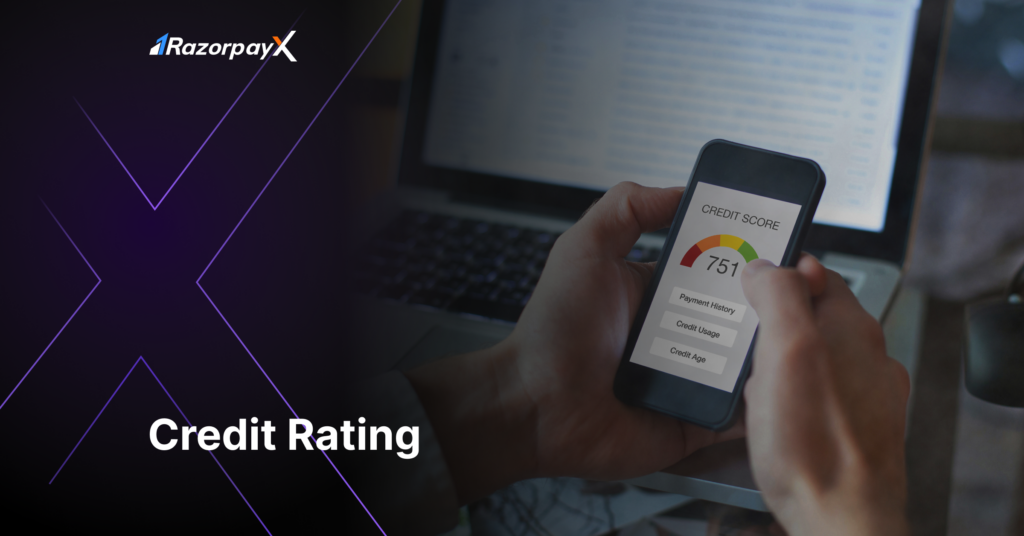Credit rating is the assessment of the financial behaviour and creditworthiness of borrowers. This is a significant determiner that shows whether one is eligible for availing of credit and fulfilling the monetary obligations within predefined due dates. It also provides an implicit forecast of the chance of debtors defaulting on repayment.
To know the ins and outs of credit rating and its impact on borrowing, refer to the following sections.
Table of Contents
What Is Credit Rating?
It is indicative of the credit risk associated with a debt instrument (loan, bond etc.). It helps lenders to understand whether the borrower will be able to repay loan amounts on time or not without defaulting on the repayment.
Rating agencies take an objective assessment of borrowers’ financial status. In this regard, agencies can gather details from internal sources like annual reports, audited financial statements etc. Even information can be sourced from external references like published news articles, analyst reports and projections. Only after assessing the finance and business risks, entities are given credit ratings. Following which entities drafts a detailed credit report.
A higher credit rating is indicative of an entity’s strong repayment potential. On the other hand, entities with lower credit ratings have a higher chance of becoming defaulters.
Different Types of Credit Rating
Various terminologies are used by credit agencies to determine credit ratings.
-
Investment Grade
Investment credit rating shows that the investment is regarded as a solid one by the rating agency. That the issuer will cater to the repayment terms. Such investment options are less expensive than speculative-grade investments.
-
Speculative Grade
Speculative-grade investments are considered to be high-risk. Hence higher interest rates are charged on this. Speculative credit ratings are extended to organisations that conduct high-risk transactions.
What Is the Importance of Credit Rating?
It has a significant influence on the interest rate levied by lenders on the sanctioned amount. Higher credit ratings will enable a business owner or body to fetch competitive interest rates.
They are given depending on substantial due diligence held by rating agencies.
It acts as a deciding factor while purchasing a bond. Purchasing bonds with a substandard rating is considered to be risky as it shows that the business body or individual has a high chance to default on the bond payment.
It takes time to attain a decent rating. Hence, entities that have good ratings alongside having longer credit history are preferred and regarded as less credit risk entities than those with good credit ratings but short credit history.
What Are the Factors That Affect Credit Rating?
- It is highly affected by the financial history of the business body. A history of late or missed, defaults, etc. will have a negative impact on the rating.
- Even cash flow and existing debt levels of borrowers affect the rating.
- Business entities’ future economic potential also determines their rating. Business bodies that have good future prospects and ensure substantial profitability will receive a positive rating. In case future business prospects do not look promising enough, credit ratings will drop.
- Organisational errors that hinder timely debt repayment.
- Even hard inquiries have an adverse impact on the rating. Every time borrowers apply for a credit option, financial institutions assess the credit report. Multiple loan applications will lead to increased hard inquiries which will bring down the rating. Soft inquiries, on the other hand, do not impact the credit score.
- Even filing for bankruptcy will have a severe impact on credit ratings.
- Increasing the credit card limit shows one’s dependency on credit. This not only lowers the credit score but also leads to rejections of loan applications in future.
- Having a poor blend of credit also lowers the credit rating. Hence, borrowers must opt for more than one type of credit option. Having a proper mix of credit shows that the business entity or owner has the potential to handle finances well which further enhances the credit score.
Banking has faced prominent evolution. The evolution of the fintech space has had a significant impact on businesses today.
- RazorpayX allows business owners to open current accounts, pay taxes, schedule payments, pay vendors seamlessly and check invoices from a single dashboard. This saves valuable time and effort.
- It fills the gap between advanced banking solutions and finance professionals. It allows easy accounting software integration.
- With RazorpayX Payroll, businesses can automate salary payments and provide insurance policies to their employees.
Frequently Asked Questions
What is the difference between credit rating and credit score?
Credit rating applies to business bodies, government bodies as well as individuals. On the contrary, credit score is applicable only for individuals and small businesses and are expressed via numeric representation. Even the way of determining the value of credit rating and credit score is different.
Who assesses the credit ratings?
Credit rating of a business body or borrower is evaluated by a credit agency. The agency scrutinises the quantitative and qualitative features of the borrower or entity in question. Some of the notable credit rating agencies are CARE (Credit Analysis and Research Limited), CRISIL (Credit Rating Information Services of India Limited), India Rating and Research Private Limited etc.
Why is it important to check the credit rating before availing a line of credit?
It is imperative to monitor the credit rating as it is the most effective means to gauge one’s chances to avail of a line of credit. It will also help business bodies to identify any discrepancies in the credit report which will help in making timely amendments.
